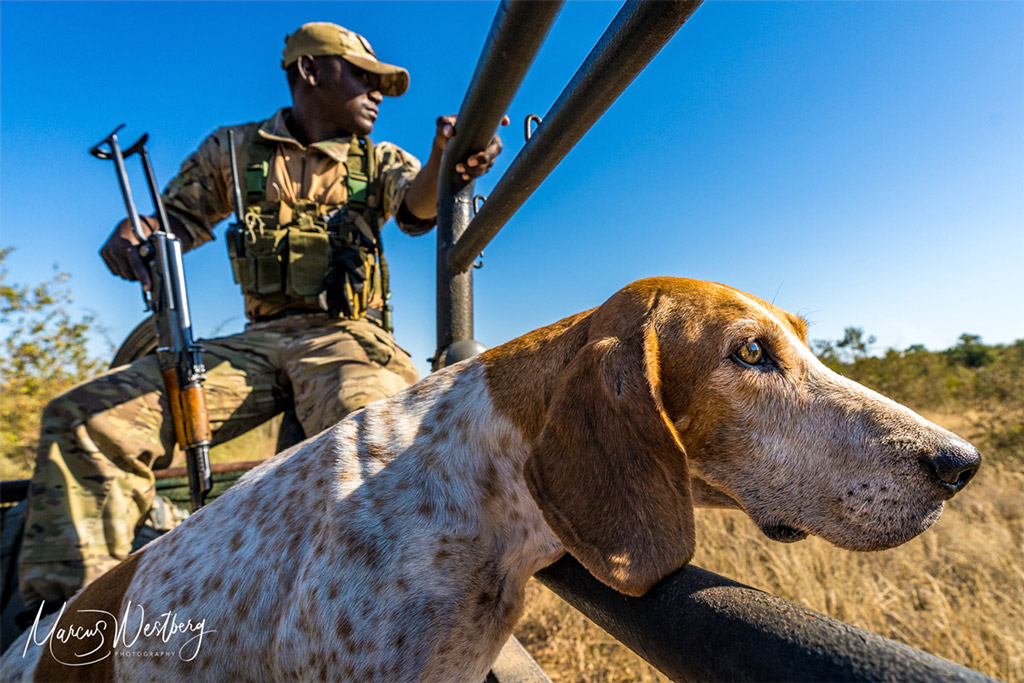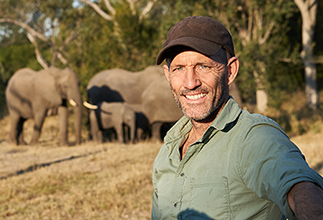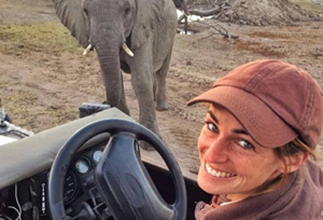
This is a copy of our weekly email newsletter. Subscribe here to receive the newsletter.
 Most heroes get on with their hero work anonymously. Often their only reward is the personal knowledge of a job well done, or, a pat on the back from a proud spouse, parent or colleague. Many have and will die, as they lived – in penury, rewarded with memories rather than money.
Most heroes get on with their hero work anonymously. Often their only reward is the personal knowledge of a job well done, or, a pat on the back from a proud spouse, parent or colleague. Many have and will die, as they lived – in penury, rewarded with memories rather than money.
We can all think of such people – courageous rangers who, as we acknowledge on World Rhino Day on the 22nd of September, risk life and limb to protect our precious wildlife; passionate researchers who toil in heat, cold and dust in the pursuit of knowledge; tireless fundraisers who pry open the coffers of the well-to-do; the generous donors who hand out largesse without ever asking for acknowledgement.
In our first story below, we take a look at a tiny proportion of the substantial academic literature related to lion hunting in Africa. This is a fascinating and important area of research undertaken by academic heroes who work in politically and physically dangerous spaces, making a huge difference to African predator conservation.
Our second story below is a wonderful tale of a family smitten by African wilderness. While on a canoe trip, they passed an idyllic spot on the Zambezi River bank below Kariba Dam and fell in love. Now their lives are dedicated to restoring nature at Mukalya Private Game Reserve.
Reading academic tomes can be like mainlining anaesthetic drugs. Our third story below is an exception. It is a summary of a massive report compiled by the School of Wildlife Conservation at the African Leadership University. It’s the result of years of often thankless research compiled by unsung heroes at the coalface of trying to understand the future of Africa’s wild spaces.

James Hendry – Editor-in-Chief
From our Scientific Editor

The distressing decline of insect numbers across the globe is cause for tremendous concern. Not only do these helpful animals play a role in removing detritus but, most importantly, they pollinate many of the crop species that feed the world. Whatever the reason for this disappearance, it could exponentially worsen malnutrition and nutritional deficiencies (particularly vitamin A) for hundreds of thousands of people. Have a look at our “Did you know” fact of the week – it is a terrifying realisation that the future of our chocolate supply potentially rests on the tiny shoulders of the cacao plants’ midge pollinators.

Story 1
https://africageographic.com/stories/is-lion-hunting-sustainable/
LION HUNTING SUSTAINABLE?
Is lion hunting sustainable? Pragmatic experts desperate to conserve our remaining wild lions have done fascinating research.
Story 2
https://africageographic.com/stories/mukalya-private-game-reserve-rescuing-wilderness/
SAFARI INSPIRATION
Inspiring story, gorgeous safari – Mukalya Private Game Reserve is a restored wilderness on the banks of the Zambezi River.
Story 3
https://africageographic.com/stories/unlocking-the-potential-of-the-wildlife-economy-in-africa/
WILDLIFE ECONOMY
African wildlife economy – unlocking potential and inspiring investment in nature for conservation and development. Club members only
 TRAVEL DESK UPDATES:
TRAVEL DESK UPDATES:
• If this evocative video filmed in Tanzania’s remote Katavi NP does not get you dreaming of your next safari, nothing will. Tip: visit our club lodge selection and search for ‘Katavi’ or ‘Tanzania’ for the best lodges and prices.
• Travel insurance is vital for your safari plans. Make sure your insurance package includes cancellation or curtailment of the safari (including due to Covid), emergency evacuation expenses, medical expenses, repatriation expenses, damage/theft/loss of personal baggage, money and goods.
• Intrepid travellers are taking advantage of killer prices – out there as you read this enjoying their safaris arranged by teamAG. Check out this review of an excellent safari to Greater Kruger, South Africa.
 DID YOU KNOW: Without special midges, just 1 – 3 mm in length, there would be no chocolate!
DID YOU KNOW: Without special midges, just 1 – 3 mm in length, there would be no chocolate!
 WATCH: The most gorgeous, relaxing exposition of Southern African and Madagascan wildlife (3:34)
WATCH: The most gorgeous, relaxing exposition of Southern African and Madagascan wildlife (3:34)
To comment on this story: Login (or sign up) to our app here - it's a troll-free safe place 🙂.![]()






